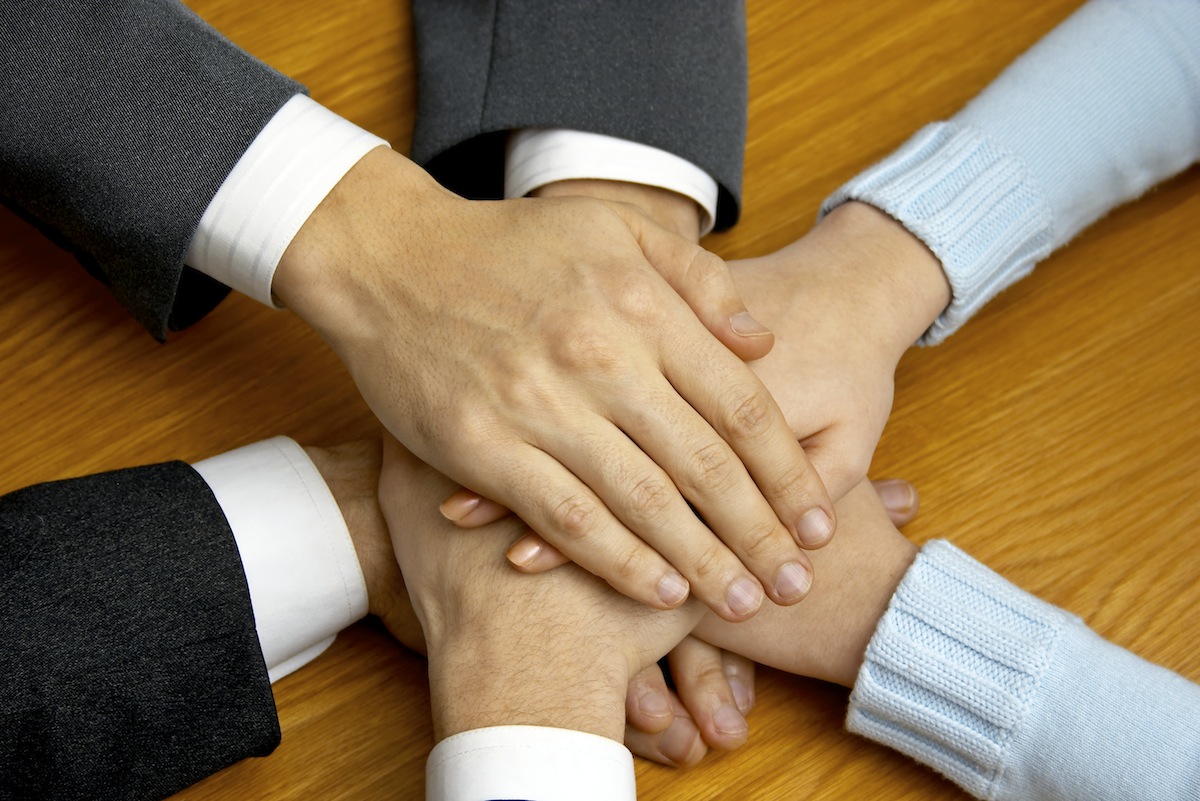We, the Members of Sex Addiction Recovery
 “It’s about engaging in healthy sexual behaviors and learning how to love and exist in an intimate relationship with another human being.”—Jennie Ketcham
“It’s about engaging in healthy sexual behaviors and learning how to love and exist in an intimate relationship with another human being.”—Jennie Ketcham
We, the members of S-groups (Sexaholics Anonymous or SA; Sex and Love Addicts Anonymous (SLAA); Sex Recovery Anonymous or SRA, etc.), like to call our meetings the end of the line. We might have a few options, and they may each have their own slightly distinct flavor, but what we know is that when you get to where you’re finally acknowledging a problem with sex addiction, you’ve hit the foundation stones. Most of the members of our groups started out seeking recovery for drugs or alcohol abuse years earlier, and only slowly, through desperate searching and rare and painful moments of lucidity, did we come to see that booze or pills or speed or pot wasn’t really our main problem. Our problem was with sex, or more importantly, this thing that kept us craving connection with other people, but scared witless of actually having it.
Maybe we had a problem with flirting or cheating—like, no matter how committed we believed ourselves to be to a spouse or partner, we just couldn’t stop hunting down the thrill that came strictly from the chase. Seeing a sexy stranger on the subway could have us walking six blocks out of our way. Or catching the eye of someone across the produce section could have us lingering at the register or loafing in the parking lot, trying to catch sight of a car, its direction, anything. Or maybe our problem was with pornography; even better, then we wouldn’t have to risk getting close to actual people. We could sit down to spend 10 minutes for a quick release, but 10 minutes would turn into two hours and two hours would turn into four weeks or six years, and before we knew it, all our free time was dedicated to Internet porn; we weren’t even leaving the house anymore. So much for sexy subway stranger or pretty produce girl.
Feelings of Shame
Then after a while, we discovered that even though these behaviors made us feel creepy and ashamed, we couldn’t seem to find the brakes, and certainly not the gear for park. And not only did we feel the urge, the drive, the need to keep going, we found our old behaviors no longer seemed to satisfy; we needed to amp things up. Excessive flirting turned to cheating and cheating turned to excessive cheating. Pornography turned to extreme, illicit pornography—violent or disturbing content that made us shudder when not using—and illicit pornography perhaps to prostitutes. Chronic masturbation turned to days missed at work, physical discomfort, ruined relationships and maybe forays into exhibitionism. Not all of us crossed over this way, but plenty of us did.
Disturbingly, we learned that no matter how hard we worked at drug or alcohol recovery, our compulsive sexual acting out kept us sick. We often couldn’t stay sober from substances as long as we were engaging in sex addiction, and likewise, slipping back into drinking or drugs sent us spiraling into compulsive sex. It occurred to us, eventually, that our problem wasn’t just booze, or just cocaine, for example, or even just sex. We had, simply, a problem of addiction. No part of us could get well unless the whole of us did.
As author and recovering addict Jennie Ketcham told The Daily Beast: “It turns out that it doesn’t matter if there is a primary problem. What matters is that I’m suffering from the disease of addiction, and as long as I am taking things that have a physiological effect on my body and mind, I am cutting myself off from my feelings. I don’t need any help cutting off or disconnecting from the people whom I love.” And that, ultimately, is what sex addiction is: a problem of disconnection—a problem of “disordered intimacy.”
As sex addicts, we confuse intensity with connection and seek again and again the thrill, never understanding that true intimacy cannot be had without risking ourselves—not our bodies, but our emotions. To risk being truly known is to risk feeling vulnerable. We prefer to use sexual relating as a means to control just how close others can get to us, which is to say, not close at all. And this is why sex addicts joke that other addicts are just practicing; we’re the big leagues. When you’re finally ready for recovery from sexual addiction, you must face being willing to get close to another person, even when it scares you, even when it hurts. The old tricks of numbing out, running away and chasing others off aren’t on the table. You have to rewrite the rules of the game, this time with a conscious decision not to play, but to show up.